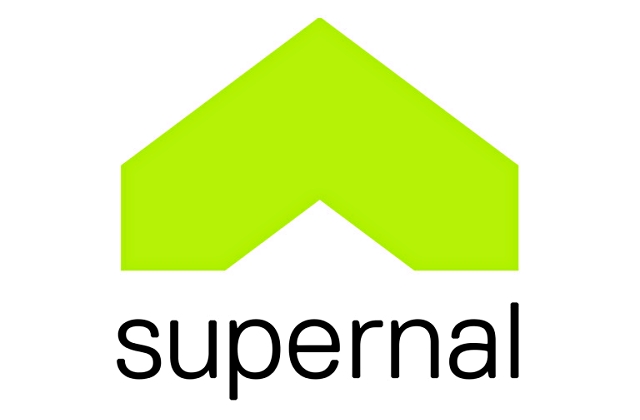Hyundai Motor finally announced the name of its urban air mobility (UAM) unit that is based in the United States. On Tuesday, Nov. 9, the South Korean automaker said it is calling its subsidiary "Supernal."
Hyundai Motor established its UAM in the U.S. with a goal of making its presence known and felt in the mobility solutions market there. As per Yonhap News Agency, Supernal is headquartered in Washington D.C., and it has plans to set up a research and development (R&D) facility in California next year.
The main goal of Supernal is to produce a fully electric UAM vehicle by the year 2028. These models should be ready to work in some urban areas as well as regional air mobility or RAM for intercity operations by 2030.
Hyundai Motor established its UAM division last year, and one of its projects is to produce an electric vertical take-off and landing or simply eVTOL, which is a technology that will make cars fly. This is said to be an important innovation for the future as it can be a solution to traffic congestion since it can connect the sky and the ground.
At any rate, the Supernal UAM company is owned by Hyundai's three leading affiliates - Hyundai Motor Co., Hyundai Mobis Co., and Kia Corp. According to Korea Joongang Daily, in the early days, before the carmaker called it UAM, its original name was Genesis Air Mobility.
"In adding a new dimension to mobility, we are on a mission to transform how people and society move, connect, and live," Supernal's chief executive officer and Hyundai Group president, Jaiwon Shin, said in a press release.
He added, "We have bold ambitions at Supernal but being first to market is not one of them. We are working to build the right product and the right integrated market, and we will leverage Hyundai Motor Group's scaled manufacturing expertise to ensure AAM reaches the right price point and is accessible to the masses."
Shin was revealed to be a former employee at the U.S. National Aeronautics and Space Administration (NASA), but it was not mentioned what his position was. In 2019, Hyundai recruited him to work for its innovative "flying cars" of the future. Hyundai is aiming to integrate UAM into the current transportation system and make it work without complexities.



 China Extends Gold Buying Streak as Reserves Surge Despite Volatile Prices
China Extends Gold Buying Streak as Reserves Surge Despite Volatile Prices  Instagram Outage Disrupts Thousands of U.S. Users
Instagram Outage Disrupts Thousands of U.S. Users  Weight-Loss Drug Ads Take Over the Super Bowl as Pharma Embraces Direct-to-Consumer Marketing
Weight-Loss Drug Ads Take Over the Super Bowl as Pharma Embraces Direct-to-Consumer Marketing  FDA Targets Hims & Hers Over $49 Weight-Loss Pill, Raising Legal and Safety Concerns
FDA Targets Hims & Hers Over $49 Weight-Loss Pill, Raising Legal and Safety Concerns  U.S. Stock Futures Slide as Tech Rout Deepens on Amazon Capex Shock
U.S. Stock Futures Slide as Tech Rout Deepens on Amazon Capex Shock  Gold and Silver Prices Slide as Dollar Strength and Easing Tensions Weigh on Metals
Gold and Silver Prices Slide as Dollar Strength and Easing Tensions Weigh on Metals  Gold Prices Slide Below $5,000 as Strong Dollar and Central Bank Outlook Weigh on Metals
Gold Prices Slide Below $5,000 as Strong Dollar and Central Bank Outlook Weigh on Metals  Dollar Steadies Ahead of ECB and BoE Decisions as Markets Turn Risk-Off
Dollar Steadies Ahead of ECB and BoE Decisions as Markets Turn Risk-Off  Russian Stocks End Mixed as MOEX Index Closes Flat Amid Commodity Strength
Russian Stocks End Mixed as MOEX Index Closes Flat Amid Commodity Strength  Trump Endorses Japan’s Sanae Takaichi Ahead of Crucial Election Amid Market and China Tensions
Trump Endorses Japan’s Sanae Takaichi Ahead of Crucial Election Amid Market and China Tensions  Rio Tinto Shares Hit Record High After Ending Glencore Merger Talks
Rio Tinto Shares Hit Record High After Ending Glencore Merger Talks  Nvidia CEO Jensen Huang Says AI Investment Boom Is Just Beginning as NVDA Shares Surge
Nvidia CEO Jensen Huang Says AI Investment Boom Is Just Beginning as NVDA Shares Surge  Thailand Inflation Remains Negative for 10th Straight Month in January
Thailand Inflation Remains Negative for 10th Straight Month in January  CK Hutchison Launches Arbitration After Panama Court Revokes Canal Port Licences
CK Hutchison Launches Arbitration After Panama Court Revokes Canal Port Licences  South Korea’s Weak Won Struggles as Retail Investors Pour Money Into U.S. Stocks
South Korea’s Weak Won Struggles as Retail Investors Pour Money Into U.S. Stocks  Missouri Judge Dismisses Lawsuit Challenging Starbucks’ Diversity and Inclusion Policies
Missouri Judge Dismisses Lawsuit Challenging Starbucks’ Diversity and Inclusion Policies  Nasdaq Proposes Fast-Track Rule to Accelerate Index Inclusion for Major New Listings
Nasdaq Proposes Fast-Track Rule to Accelerate Index Inclusion for Major New Listings 































